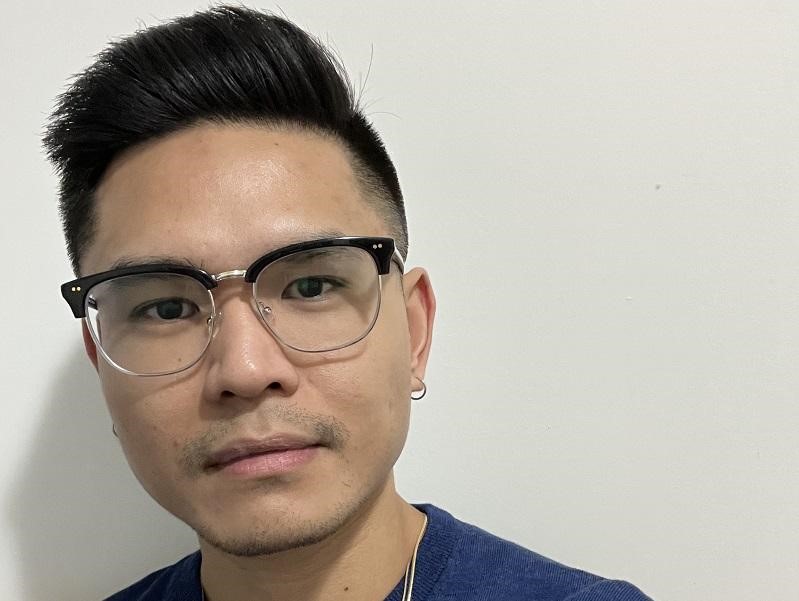Student spotlight: Michael Butac (Urban Health PhD)

Michael Butac was the first ever in his family to attend university. Now, he’s pursuing his PhD in Urban Health, with aspirations of becoming a professor representing queer, racialized populations.
Urbanization is impacting the health and well-being of city dwellers in more ways than ever before. There’s a pressing need for comprehensive solutions. Our Urban Health PhD— the first of its kind in Canada — is equipping students to take advisory and leadership roles in this area.
The program welcomed its second cohort last fall. Among them are TMU alumnus Michael Butac, Early Childhood Studies (MA) ’16. After working with homeless 2SLGBTQ+ youth, Butac is back pursuing his passion in advancing the mental health and well-being of diverse populations.
Tell us about yourself.
My name is Michael Alonzo Butac (he/him) and I am a cisgender, gay man of Filipino descent, who was born and raised in the Greater Toronto Area. While I am from a single parent home, I was fortunate to be surrounded by a huge extended family who have been a source of support, particularly throughout my academic journey. As the first person in my family to ever attend university, I have always felt their love and encouragement, which has helped me to get to where I am today!
I have a BA in Psychology from the University of Guelph, an MA in Early Childhood Studies from TMU, and a postgraduate certificate in Addictions and Mental Health from Humber College. My professional experience is primarily with 2SLGBTQ+ youth experiencing homelessness. I have also supported postsecondary students as a student advisor, and contributed to various research projects along the way.
Aside from school and work, I am a parent to two beautiful kittens, an avid fiction reader and pop culture enthusiast. I love discovering new places to eat as food speaks to the depths of my soul. I also enjoy karaoke and pop diva-themed dance parties!
What area of research do you plan to pursue?
I am very passionate about increasing representation of intersecting identities in research, specifically in the area of mental health and well-being for the 2SLGBTQ+ racialized community.
My dissertation will explore the experiences of 2SLGBTQ+ racialized youth aging out of social services. From my frontline experience, aging out can be a very emotional time as youth are anticipating a loss in vital services that have supported their mental and physical health, and overall well-being. There’s also the loss of meaningful relationships with staff and youth, and access to a space that allows them to build community and feel a sense of safety and belonging. Learning to navigate adult services, particularly identity-affirming ones, can also be a challenge.
Aging out of services is understudied, particularly in social services. The issue is lacking further knowledge from an intersectional framework, which is important to consider given that marginalized communities often experience more barriers to accessing services. Through my research, I hope to expand knowledge on aging out, bridge the gap between research and social service practice, and most importantly, ensure equitable access to inclusive, safe supports for 2SLGBTQ+ racialized individuals.
What do you hope to accomplish with your PhD?
This is a bit of a vulnerable question for me as pursuing my PhD has always been something I knew I wanted to do for a very clear purpose. Throughout my academic journey, it was very rare to see a queer professor in academia, let alone a queer racialized one, which often felt discouraging. This representation has slowly been growing, and I hope to contribute to that as a professor and researcher. I want 2SLGBTQ+ students to know that we can succeed in areas where we may often feel invisible or even unwelcomed.
With my PhD and onwards, I want to amplify the voices of 2SLGBTQ+ youth and shine light on their needs, their strengths, and their challenges in relation to their mental health and well-being. I hope to increase my expertise in community-based research, so that my work is collaborative and an empowering experience that can lead to meaningful social change.
Do you have any advice for students considering the Urban Health PhD program?
I would tell interested students that pursuing a PhD in Urban Health is a new and exciting opportunity that can lead to meaningful societal change on a range of levels. I’d encourage students to bring an open mind to learning about other people’s expertise and areas of interests, and how, ultimately, we all have a common goal of caring for our communities that make up urban populations.
I’d also encourage students to reflect on what research topic will spark their curiosity, their passions, but also bring an aspect of joy. The PhD journey can be intimidating, stressful, and packed with deadlines, so I think it’s important to keep in mind one’s own mental health and readiness to delve into certain research topics, maintain self-care practices, and to seek out opportunities for fun along the way.
In case you missed it: Meet more students in the Urban Health PhD program.


